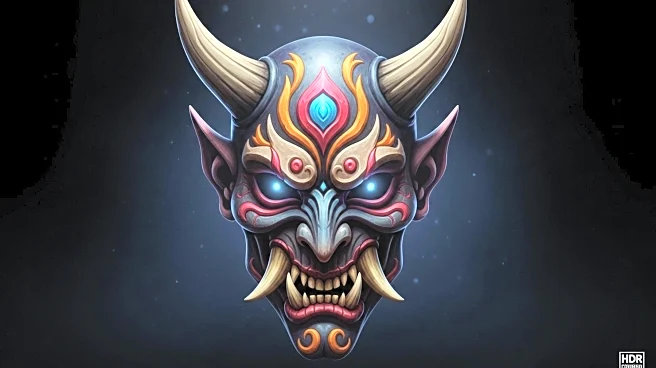What's Happening?
Netflix's animated film 'KPop Demon Hunters' has become a global sensation, breaking streaming records and topping the domestic box office. The film features a KPop girl group, Huntr/X, who double as demon hunters, with voices provided by Arden Cho, May Hong, and Ji-young Yoo, and singing by EJAE, Rei Ami, and Audrey Nuna. The film's soundtrack has four songs in Billboard's top 10, showcasing its widespread appeal. The film's success is attributed to its cultural representation and the creative liberty in blending English and Korean in its songs, which resonates with audiences worldwide.
Why It's Important?
'KPop Demon Hunters' is significant for its cultural representation, highlighting Korean American culture and breaking barriers in the animation industry. It showcases the potential for diverse stories to achieve mainstream success, encouraging more inclusivity in media. The film's bilingual songs contribute to cultural exchange, allowing both Korean and American audiences to connect with the narrative. This success may inspire more projects that embrace cultural diversity, impacting how stories are told in the entertainment industry.
What's Next?
The film's success could lead to more projects that focus on diverse cultural narratives, potentially influencing the animation industry to prioritize inclusivity. Stakeholders in the entertainment industry may explore similar themes to capitalize on the growing demand for culturally rich content. The film's popularity might also encourage collaborations between Korean and American artists, fostering cross-cultural partnerships.
Beyond the Headlines
The film's exploration of themes like identity and embracing one's imperfections resonates with audiences, offering a deeper narrative beyond its entertainment value. It challenges traditional cultural norms, particularly in Asian communities, by addressing generational trauma and promoting self-acceptance. This could lead to broader discussions on mental health and cultural identity, influencing societal attitudes towards these issues.









